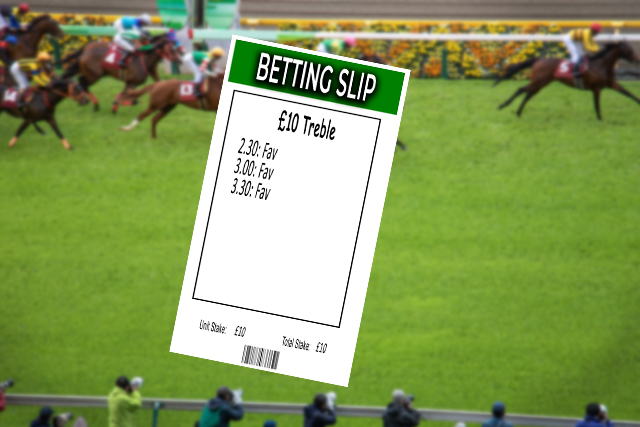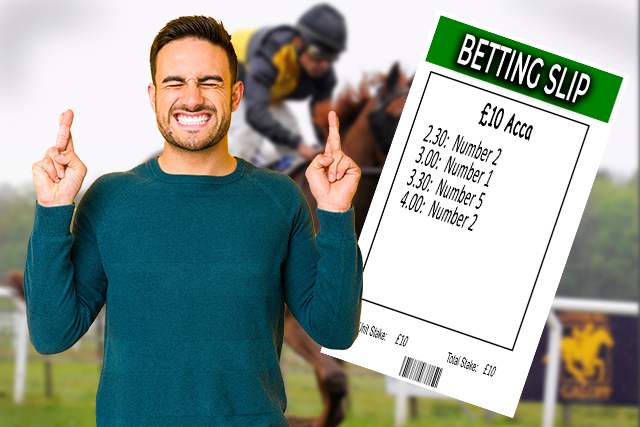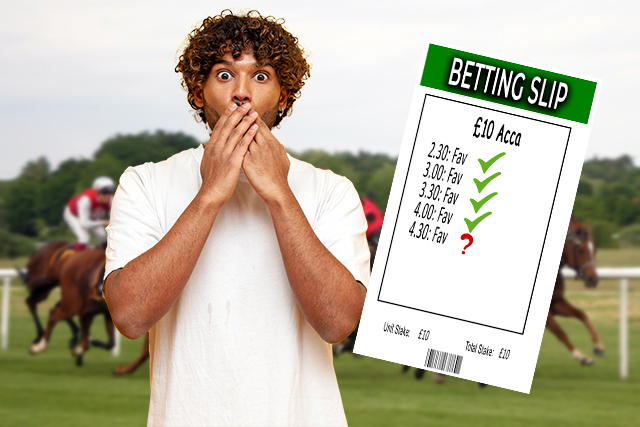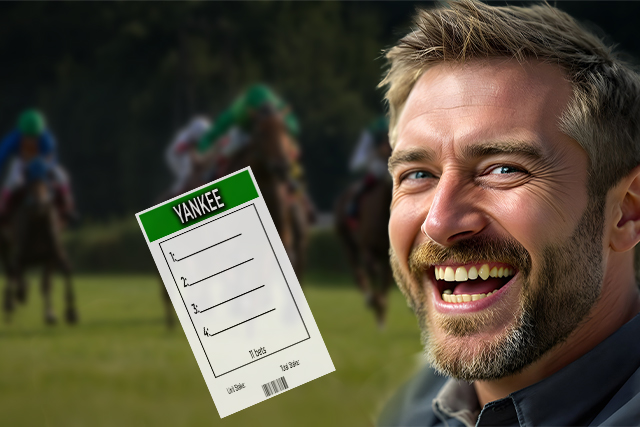The Treble Bet: Three Times the Thrill
By Stuart Ward, 6th January 2025

After playing the double, if you have experienced some success, you will likely want to push your luck a bit further. Indeed, if you have a high strike rate in finding winners, you may wish to aim at finding a winning treble bet.
Now, the chances of losing become very likely, but the rewards from a winning punt are significant.
The odds of each selection multiply with the others, resulting in a big cash payout—if every pick is a winner!
What is a treble bet?
A treble is one wager on three selections in three separate events. All three selections must win their events for you to have a winning ticket.
As always, we will concentrate on horse racing.
So, you must select three horses to win three separate races. And that will be one wager with one stake.
How do you win a treble in horse racing?
You have one wager predicting the winning horse in three separate races. So, for your treble to be a winner and for you to smile as you collect a handful of cash, the following must happen:
- Your selection in your chosen first race to go off must be a winner.
- That horse wins, great. The returns are all onto your second race (in time order).
- Should that horse also win, the total returns so far will go on to your third and final selection of your bet.
If any of your selections should lose, the whole bet has lost, and your stake money will stay with the bookmaker. Now, you will definitely curse yourself, especially if it is the final race of your gamble. You were so close but have nothing to show for it.
But if all three selections of your treble win their races - congratulations! You've got some serious cash to collect from your bookmaker. Now is the time to celebrate your betting prowess. And I'm certain that it will involve a glass of something chilled and sparkling!
How to work out a treble bet.
There is a bit of maths involved, but here we go.
You've had a £10 treble on three horse races.
- Your first horse has won its race at odds of 2/1. That returns £30 going onto your second selection in time order.
- Your second horse wins its race at odds of 15/8. That returns £86.25 going on to your third and final selection. Your final horse has to win its race, or your bet has lost.
- Success! Your third and final selection is a winner at odds of 11/10. Your total returns are £181.12.
To calculate your winnings, multiply the odds of all three races by your stake.
So the bookie would settle our example bet above as:
2/1 (3) x 15/8 (2.875) x 11/10 (2.1) x £10 stake = £181.12
If you're betting on horse racing, instances such as rule 4s, non-runners, and dead heats may impact your returns.
What if you have non-runners?
This is quite simple to settle should any of your selections become void or non-runners.
- If you have one non-runner, your punt becomes a double on the remaining two selections.
- Should you have two non-runners, your whole stake would go onto the third selection as a single bet.
- If all three selections are void, your bookmaker will return your stake money.
Summary
Having three races, where each winner multiplies to give a substantial return, can make a thrilling experience at the races.
On the other hand, the increased number of selections does make it growingly hard to make a profit. If just one selection loses, the whole bet has lost. Having one selection beaten by a short head can evoke deep frustration.
If you are enthusiastic about having one wager to cover three races, you could consider placing a multiple or full-cover bet. A Patent or a Trixie offers the potential for significant rewards with the chance of recovering some of your stake in the event of one or two losses.
Shall we take things a step further and up the ante? If you're ready, let's explore the Fourfold.




